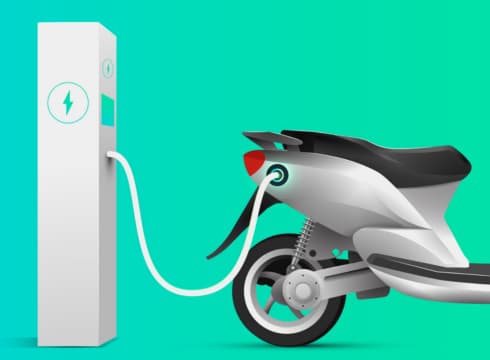Ola Electric and Hyundai would receive incentives for 20-gigawatt hours (GWh) capacity
The winning bidders also include Indian jewellery maker Rajesh Exports and Hyundai Global Motors Company
Ola Electric did not confirm the media report to Inc42
Inc42 Daily Brief
Stay Ahead With Daily News & Analysis on India’s Tech & Startup Economy
Bhavish Aggarwal-led mobility giant Ola Electric is set to receive incentives under India’s $2.4 Bn programme to boost local battery cell production after winning a tender.
The winning bidders also include Indian jewellery maker Rajesh Exports and Hyundai Global Motors Company, the sources told Reuters on condition of anonymity. As winners, Ola Electric and Hyundai would receive incentives for 20-gigawatt hours (GWh) capacity.
Ola Electric did not confirm the media report to Inc42 while the Indian government is yet to publish any official confirmation on the same.
The government of India had approved the Production Linked Incentives (PLI) scheme for manufacturing advanced chemistry cell (ACC) batteries at an estimated outlay of INR 18,100 Cr. last year. The proposal aimed to achieve the manufacturing of 50 gigawatts of battery storage. The government said that the incentives would be available to the companies having both higher production and sales capacity.
A total of 10 companies had submitted their bids under the ACC Battery Storage Programme, as per a government announcement in January.
A spokesperson at the company referred Inc42 to a March 16 blog post by company CEO Aggarwal that announced the appointment of Dr Prabhakar Patil to the Ola Electric board and plans to set up a manufacturing facility with up to 50 GWh capacity in India.
Ola Electric recently completed the $200 Mn round at a valuation of $5 Bn, which saw the participation of Tekne Private Ventures, Alpine Opportunity Fund, and Edelweiss among others.
However, according to Tofler, Ola Electric posted revenue of INR 2.1 Cr (approx $280K) and a loss before taxes of INR 7.1 Cr (approx $945K) in FY19.
Govt Help is the Key for Indian EV Space to Boom
With companies and governments across the world trying to reach their decarbonisation and net-zero goals, India has intensified its focus on establishing a domestic supply chain for clean transport and renewable energy storage. Setting up more AC charging points for EVs has also been a key focus for the Government.
“By 2025, forecasts expect up to 4 million of such vehicles (EV) could be sold each year, growing to almost 10 million by 2030. Any charging solution to serve this sector must be highly scalable, easily accessible by the public; it should support interoperability, and be affordable,” said a government-issued statement last year.
Though India is undergoing a massive electric mobility revolution, the adoption rate of EVs in the country is still moving sluggishly primarily because of a large pricing gap between EVs and conventional ICE vehicles, according to a recent Inc42 report.
And this impacts the purchase decision of buyers, largely in the lower-end car segment. At a time like this, the government incentivising companies could be a key in achieving the goals for a sustainable future.
A last years’ report said that India’s electric vehicle market size is expected to reach $152.21 Bn by 2030 and expand at a compound annual growth rate (CAGR) of 94.4% from 2021 to 2030.
Elon Musk-led Tesla is also closely monitoring Indian government announcements regarding changes to the country’s goods and services tax that might reduce the cost of owning an electric car.
Venture capitalists could also play a major role in initiating steps towards the change. Last month Ankit Kedia’s early-stage VC fund Capital A announced the launch of ‘Evolve’, a $10 Mn (INR 75 crore) cleantech fund aimed at furthering the EV ecosystem.
{{#name}}{{name}}{{/name}}{{^name}}-{{/name}}
{{#description}}{{description}}...{{/description}}{{^description}}-{{/description}}
Note: We at Inc42 take our ethics very seriously. More information about it can be found here.


